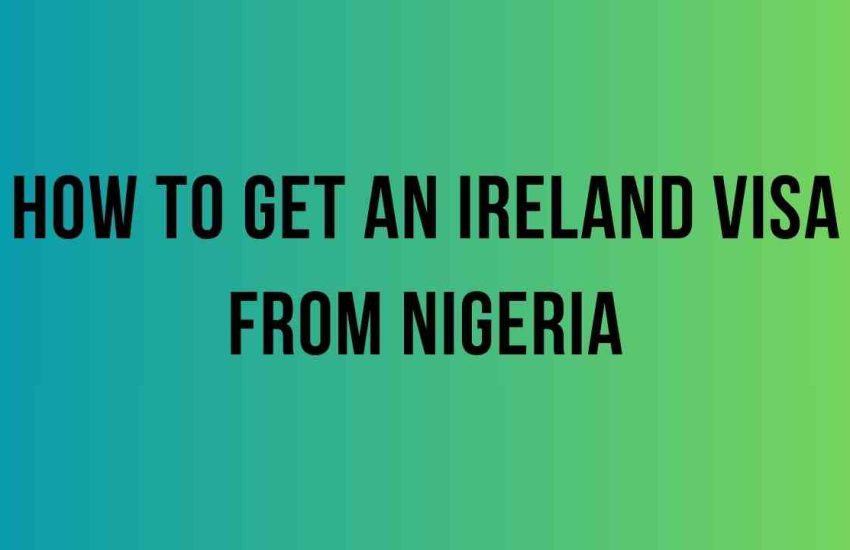Planning a trip to France from Nigeria? With its renowned gastronomy, art, culture, and breathtaking landscapes, France remains a top travel destination for Nigerians. Yet the application process can seem daunting if you’re unfamiliar with the requirements.
This article will cover everything you need to know to travel to France from Nigeria, including passport validity, French visas, health coverage, accommodation, and other essential information to ensure a smooth trip.
APPLY FOR JOBS AND SCHOLARSHIP
- Top 9 Free Universities in France [Latest Update
- Contract Jobs Vs Full-Time Jobs USA: Which one pays the Highest
- 10 High Demand Jobs In Ontario, Canada, paying over $100 Per Hour
- 10 Best Countries in Europe for Doctors in Africa to Relocate To
- Requirements for Nigerians Applying for Canadian Tourist Visas
- Top Countries Abroad for Engineers in Africa to Relocate To
- Top 10 Countries to Study Abroad and Work
Requirements to Travel to France From Nigeria
Passport Validity
To enter France, your Nigerian passport must be valid for at least three months beyond the period of your intended stay. For example, if you plan to stay in France for two weeks, your passport should be valid for at least three months and two weeks from your date of arrival. This allows you to remain in France for your trip and still have enough validity to return to Nigeria. Your passport must meet French validity requirements, so check the expiration date well in advance.
French Visa Requirements
Nigerian citizens need a French visa to enter and travel within France or other Schengen zone countries. The type of visa you’ll need depends primarily on the purpose and duration of your trip:
- Short-Term “Schengen” Visa—This visa is for tourism, business, or other stays of up to 90 days in 180 days. The processing time is typically 2 to 10 days.
- Long-Stay Visa—This visa is for studies, work, or stays over 90 days. Processing can take 2 to 3 months.
- Airport Transit Visa—This visa allows you to pass through a French airport without entering the Schengen Area. Processing can be done quickly, in 1 to 3 days.
Schedule your visa appointment for at least three months to ensure sufficient processing time. Complete your visa application fully and provide all required documents, such as your passport, flight itinerary, hotel bookings, travel insurance, bank statements, invitation letters, and others needed for the specific visa type.
Round Trip Ticket and Accommodation
To satisfy French immigration authorities, you must provide documentation of your planned round-trip airline ticket. Temporary accommodation bookings for your entire stay are also required, whether you book a hotel, rental apartment, or stay with a family member or friend. Have printouts of all your reservations to present during your visa application and at the port of entry.
Travel Medical Insurance
Applicants for French visas must provide proof of valid travel medical insurance as a condition of entry. Your policy must cover the entire Schengen area for your trip with a minimum coverage of 30,000 euros. Take time to understand what the insurance covers regarding emergency hospital care, doctor visits, repatriation, and other essential benefits.
Some options for reputable French travel medical insurance providers include Allianz, April International, AXA, HTH Worldwide, and Travel Guard.
Proof of Sufficient Funds
French authorities will request that you provide proof of sufficient funds to establish that you have enough money to fund your travels and avoid overstaying your visa. This can include recent bank statements, pay slips, cash, traveller’s cheques, credit cards plus statements, or sponsorship letters from family and friends.
Onward Travel Plans
Be prepared to show your travel plans beyond France to demonstrate ties to your home country. This provides evidence of your intention to leave France and complete your temporary visit. Onward travel bookings, tickets, or detailed itineraries for the next destination after France can satisfy officials when entering or exiting the Schengen area.
Travel Purpose and Itinerary
French consular officials will want to understand your trip’s purpose and planned itinerary. Bring any relevant supporting documents, such as business invitations, conference details, university admission letters, tour bookings, or planned itineraries with specific dates. This helps validate the reasons for your visit and the planned length of stay.
Personal Documents
In support of your visa application and to clear French customs, be prepared to present:
- Recent passport photos
- Identification like national ID cards or driver’s license
- Proof of accommodation
- Travel Insurance
- Confirmed tickets and reservations
- Financial means verification
- Employment verification, like pay slips or letters
- Student status documentation
- Marriage certificate (for married applicants)
- Birth certificates of children travelling
- Vaccination records
Any documents not in English or French must be translated and apostilled by an approved translator.
Vaccination Requirements
France currently does not require any specific vaccinations for entry from Nigeria. However, some recommended immunizations for travel to France include:
- COVID-19
- Hepatitis A
- Hepatitis B
- Measles, mumps, rubella (MMR)
- Tetanus, diphtheria, pertussis
- Chickenpox
- Polio
Check with your doctor before travel for other recommended vaccinations and health precautions for France. Carry your International Certificate of Vaccination, so you’re ready to provide records when requested.
COVID-19 Requirements
France’s COVID-19 entry rules continue to evolve. Approved vaccinations are required for entry from Nigeria and most other non-EU countries. Keep up-to-date with France’s latest pandemic travel restrictions through official government sources leading up to your departure.
You’ll likely need to provide certification of full vaccination and negative COVID test results. Unvaccinated children under 12 may enter with vaccinated guardians. Other exemptions exist, such as for essential reasons and those recovered from COVID-19. But vaccination remains the clearest path for entry.
Traveling With Children
Minor children travelling without one or both parents must carry parental consent letters from any absent parent authorizing the travel. Birth certificates proving your relationship are also required. Unaccompanied minors can face extra scrutiny to ensure their safety, so have all documents readily available.
Children under 18 may also need to meet other requirements, such as vaccinations, visa eligibility, and passport validity rules (even infants). Do your diligence to ensure a smooth entry experience for the entire family.
Dual Citizenship and Nationality
If you are a Nigerian and French national, you can enter France freely with a valid French passport without needing a visa. Those of French descent may qualify for French citizenship through ancestry and simplified naturalization processes.
Check if you qualify for French nationality through your parents, grandparents, or spouse—this can simplify travel and stays in France.
Carry Proper Currency
France uses the Euro as its official currency. Carry enough cash in Euros for your initial expenses, such as taxis, meals, and tips. ATMs are widely available to withdraw additional funds after arrival, but notify your bank before travel.
Major credit cards like Visa and MasterCard are commonly accepted in France. Just confirm that your cards have Chip and PIN capability for European card readers.
Check Travel Advisories
Read the latest French travel advisories from the Nigerian Ministry of Foreign Affairs, the French government, and other official sources. This informs you of high-risk areas, terror threats, demonstrations, labour strikes, crime, or health concerns that could disrupt your travels.
Stay vigilant, avoid protests and civil disturbances, adhere to safety precautions, and register with the Nigerian embassy in France for support services.
Obtain Travel Insurance
Comprehensive travel insurance for France should include medical coverage, emergency evacuation, baggage protection, and trip cancellation coverage in case of illness or injury. Review exclusions and ensure your policy covers all activities you intend to do in France, such as skiing, adventure sports, rental vehicles, etc.
Bring copies of your insurance certificates and emergency contact details. Leave a copy at home with your family and carry one with you.
Pack Properly for The Weather
France’s climate varies by region, from cooler Northern France to the sunny Mediterranean south. Depending on your travel months, pack suitable clothing like sweaters, jackets, scarves, and an umbrella for potential rain or snow.
Bring attire you can layer for changing conditions. Check forecasts as you travel between cities and regions in France.
Check Baggage Restrictions
Verify your airline’s baggage limits to avoid excess luggage fees. Carry-on rules are strict for international flights. Limit liquids and gels in your hand baggage. Pack valuables and medications in your carry-on instead of checking them.
Weigh bags beforehand, and don’t overpack. Leave room for any souvenirs! Pad and secure fragile items from damage.
Have Backup Photocopies
Carry backup photocopies of your passport, visa, tickets, reservations, insurance, and other important documents. Keep copies separate from the originals in case they get lost or damaged.
Securely scan or photograph key documents and email them to yourself. This provides digital access to vital records if required.
Notify Banks and Mobile Carriers
Alert your bank and mobile provider that you’ll be travelling internationally to avoid service interruptions. Unblock your cards and devices for use overseas, arrange travel notifications, and know roaming charges so you can stay connected.
Have emergency numbers to call providers in case of lost or stolen cards or devices.
Pre-Book Airport Transfers
Arrange airport pickup through your airline, travel agency, or websites like Welcome Pickups for a seamless arrival. In advance, compare taxi, train, shuttle, and rental car options for transportation into the city from the airport.
Consider Uber, Lyft, or local rideshare apps as well. You’ll need access to data or Wi-Fi to connect and request your ride.
Learn Basic French Phrases
Though many French people in cities speak English, learning common French greetings, niceties, and phrases shows respect and helps overcome language barriers.
Browse audio phrasebooks, YouTube tutorials, apps like Duolingo, and online lessons to build a foundation and gain confidence.
Some helpful phrases to know include:
- Bonjour – Hello
- S’il vous plaît – Please
- Merci – Thank you
- Excusez-moi – Excuse me
- Je ne parle pas français – I don’t speak French
- Où sont les toilettes? – Where is the bathroom?
- Combien ça coûte? – How much does it cost?
- Parlez-vous anglais? – Do you speak English?
Apply for the Visa Well in Advance
Leave ample time to gather all the required documents and submit your complete French visa application. Passport validity checks, appointments, processing, and return shipping can add weeks to the timeline.
Avoid visa delays jeopardizing your dates by applying at least 12 weeks ahead, more if requesting a longer stay visa.
We hope these tips help Nigerian travellers prepare for an amazing and hassle-free trip to France. Let us know if you have any other questions! Bon voyage!
And remember to keep visiting www.workliveincanada.com for the latest requirements on travel, study, work, and immigration to France, Canada, the US, and other top destinations.



